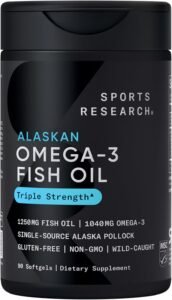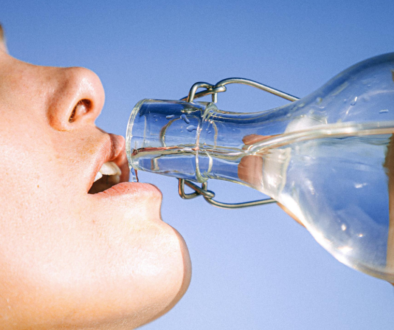Stop Blaming Age for Your Health Problems
Getting older isn’t a health sentence. Yet somehow, phrases like “That’s just what happens after 40” have become shorthand for everything from joint pain to brain fog. It’s an easy explanation—but not always an accurate one.
Here’s the truth: many of the symptoms we chalk up to age are actually the result of long-term lifestyle choices. And the good news? That means they’re changeable.
This article explores the real reasons you may not feel your best—and what to do about it.
Is It Really Age… or Just Inflammation, Stress, and Neglect?
Let’s start with some perspective. Yes, aging comes with physiological changes. Your hormone levels shift. Muscle mass decreases if not actively maintained. Your skin loses collagen. These are natural processes.
But most people aren’t suffering because of age—they’re suffering because they stopped paying attention to the foundations of health. For example:
-
Chronic stress elevates cortisol, which messes with sleep, digestion, and mood
-
Poor diet leads to chronic inflammation, bloating, weight gain, and energy crashes
-
Sedentary habits result in weak muscles, joint stiffness, and poor posture
-
Sleep deprivation affects cognition, immune function, and emotional regulation
None of these are age-dependent. They’re behavior-dependent.
Why “Just Getting Older” Is a Dangerous Mindset
When we say things like, “I’m tired because I’m getting older,” or “My metabolism isn’t what it used to be,” we unknowingly shut the door to better outcomes.
Blaming age:
-
Discourages people from seeking solutions
-
Creates a false sense of inevitability
-
Prevents meaningful lifestyle change
-
Reinforces learned helplessness around health
Instead, we should be asking: What habits or conditions might be behind this symptom? That one question can change everything.
What You Can Control (Even If You Can’t Stop the Clock)
You can’t reverse time—but you can absolutely slow the effects of aging through better habits.
Movement Is Medicine
Regular strength training and mobility work are essential. Exercise isn’t just about appearance—it directly impacts insulin sensitivity, cardiovascular health, bone density, and cognitive function.
Product Pick: Adjustable Dumbbell Set – Perfect for At-Home Strength Training
Eat to Heal, Not Just to Fuel
A diet high in processed foods, seed oils, and sugar can accelerate inflammation, while whole foods support cellular repair and energy regulation. Think fiber, omega-3s, colorful vegetables, and clean protein.
Product Pick: Omega-3 Fish Oil Capsules – Supports Joint & Brain Health
Sleep Like It Matters
Sleep isn’t downtime—it’s where the magic happens. Poor sleep is linked to memory issues, hormone imbalances, and faster biological aging.
Product Pick: Blue Light Blocking Glasses – Promote Better Sleep
Manage Stress with Intention
Unmanaged stress is a silent saboteur of your health. Whether through mindfulness, breathwork, or nervous system support, this one area alone can make a massive difference.
Product Pick: Magnesium Glycinate – Natural Nervous System Support
Stay Curious, Not Complacent
If you’re experiencing new symptoms, don’t assume they’re permanent. Run labs. Talk to a functional practitioner. Track your habits. Most importantly, don’t stop asking why.
Practical Lifestyle Shifts to Try This Week
-
Drink 1 glass of water first thing every morning
Your kidneys are most active in the morning. Starting the day hydrated supports detox, energy, and mental clarity. -
Walk for 10 minutes after meals
This small change helps regulate blood sugar, improves digestion, and supports circulation. -
Swap nightly wine for herbal tea
Alcohol disrupts REM sleep and recovery. Try a calming alternative like lemon balm or chamomile. -
Prioritize protein at breakfast
Protein helps stabilize blood sugar and kickstarts metabolism. Eggs, Greek yogurt, or a clean protein shake are great choices.
-
Stretch while watching TV
No gym required. A quick mobility session during Netflix can help reduce joint stiffness and muscle tightness.
Final Thoughts: You’re Not Broken—You’re Just Unbalanced
Feeling tired, stiff, moody, or out of shape isn’t always about age. Often, it’s about accumulation—years of stress, processed food, poor sleep, and movement neglect quietly adding up.
But that means the reverse is also true. Every better choice you make today builds momentum toward better health tomorrow.
You don’t need to overhaul your entire life in one week. Just stop blaming your birth year and start taking back your role as the CEO of your body. Small shifts, done consistently, are what make the real difference.
And here’s the kicker: once you commit to changing your lifestyle, you’ll realize that aging doesn’t have to mean decline. It can mean refinement.








